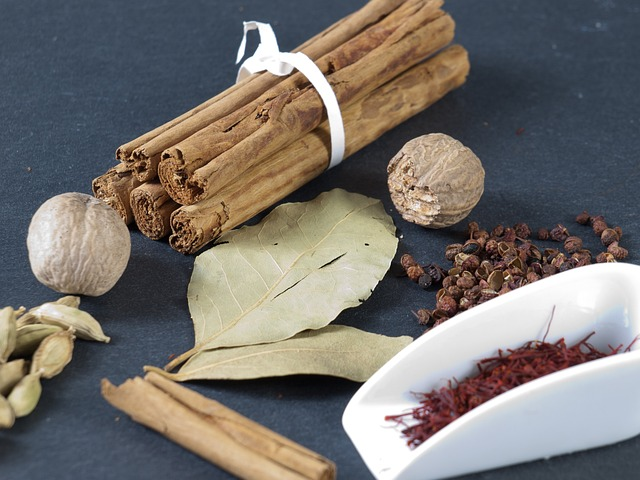10 Science-Backed Health Benefits of Cinnamon
Did you know that the spice we all recognize – cinnamon – has incredible health benefits? Studies suggest that consuming cinnamon can improve heart health, reduce diabetes symptoms and even aid in weight loss.
In this article, we will outline 10 science-backed health benefits of cinnamon and discuss how this kitchen staple can have a positive effect on your overall wellbeing. From potential cancer prevention to boosting brain function, discover the benefits of including cinnamon into your everyday routine.
What Is Cinnamon?

Cinnamon is an ancient spice, with a history that dates back thousands of years. It’s derived from the bark of various trees and can be dried and ground into powder or distilled into oil – both offering unique flavors to recipes. But it’s not just its taste that makes cinnamon so special; studies have shown that consuming this aromatic spice has many health benefits too!
Ceylon cinnamon is considered the highest quality available, packed full of antioxidants and anti-inflammatory properties. Indonesian cinnamon, also known as cinnamon cassia, is renowned for its protective effects on the liver and antimicrobial qualities. Vietnamese cinnamon is another popular variant which boasts anti-diabetic properties and helps reduce cardiovascular risks.
Not only does it tantalize our tastebuds, but it’s also rich in essential nutrients like calcium, iron, manganese and fiber – plus vitamins A through C! Eating cinnamon can help digestion, improve circulation, regulate blood glucose levels and even reduce triglycerides – all while protecting brain health and reducing inflammation. So why not add some extra flavor to your life?
Types of Cinnamon
Cinnamon has been used for centuries in traditional medicine, with bark, leaves, flowers, fruits, and roots of the cinnamon tree all having medicinal properties. The two main types of cinnamon are cassia and ceylon, which differ in both flavor and health benefits. True cinnamon, also known as Ceylon cinnamon, is believed to have many health benefits due to its low levels of coumarin, which can be toxic to the liver in large doses. This type of cinnamon has a light, sweet flavor and is significantly more expensive than cassia, which is the variety most commonly found in grocery stores. Ceylon cinnamon is usually sold as rolled sticks or ground powder and can be found in health food stores.
Cassia cinnamon is the type most often found in supermarkets and is made from the inner bark of the cinnamon tree. This type of cinnamon is stronger and more bitter than ceylon, but it does have many health benefits, including the ability to regulate blood sugar levels. Cassia cinnamon also contains essential oils such as cinnamonaldehyde, which is responsible for its distinct smell and flavor.
Cinnamon is a popular spice with many health benefits, and understanding the different types of cinnamon available can help you make the best choice for your dietary needs. Ceylon cinnamon is known for its light, sweet flavor and low levels of coumarin, while cassia is stronger and more bitter with many health benefits. Whether you use cinnamon sticks, ground cinnamon, cinnamon oil, or cinnamon extract, be sure to check the label for Ceylon cinnamon to ensure it is true cinnamon and not a cheaper variety.
Health Benefits of Cinnamon
Cinnamon is a centuries-old medicinal plant, renowned for its tantalizing taste and powerful health benefits. Its antioxidant and anti-inflammatory properties are derived from polyphenols and phenolic acids, which neutralize free radicals to protect cells throughout the body. It’s also packed with choline, beta-carotene, alpha-carotene, beta-cryptoxanthin, lycopene, lutein and zeaxanthin – all of which have their own unique antioxidant powers.
From fighting off colds to relieving age-related symptoms or even curbing neurological diseases like Parkinson’s or Alzheimer’s disease – cinnamon is a natural healer! Studies suggest it may even provide protection against influenza and Dengue fever as well as having a positive effect on cancer prevention.
But that’s not all! Cinnamon has been linked to providing protection against various chronic diseases such as heart disease due to its ability to reduce inflammation in the body. Plus it can help improve brain health too! Research shows that consuming cinnamon can significantly reduce both systolic and diastolic blood pressure in prediabetic patients, while animal studies indicate cinnemaldehyde helps lower blood pressure too.
Cinnamon is also known for regulating blood sugar levels; board certified holistic nutritionist Sara Peternell ranks it first among the most popular herbs & spices worldwide! Short term consumption of this spice can decrease fasting blood sugar levels in those with poor control while improving glucose uptake & insulin sensitivity in fat & muscle tissues plus glycogen synthesis in the liver – helping better control your blood sugar levels overall.
Finally we come full circle back to inflammation: chronic inflammation has been linked to age related diseases, so people with MS often have low tregs (molecules that regulate immune system). Consuming cinnamon could help reduce colonic inflammation thus reducing risk of colon cancer – making this spice an incredibly versatile addition to any diet! In conclusion, cinnamon is a powerful spice with many potential health benefits including protecting against oxidative stress & cancer; reducing inflammation; regulating blood sugar levels; decreasing high BP; improving heart health; fighting infections; boosting cognitive function & potentially reducing risk of type 2 diabetes – making it an invaluable part of any healthy lifestyle plan!
1. Anti-inflammatory properties
Cinnamon is a multifaceted medicinal plant that has been used for centuries to treat a wide variety of ailments due to its powerful anti-inflammatory properties. The polyphenols and phenolic acids in cinnamon, which are responsible for its antioxidant effects, are believed to neutralize free radicals and prevent cellular damage throughout the body. Studies have shown that consuming cinnamon can reduce inflammation, thereby helping to reduce pain and discomfort associated with various ailments. Additionally, cinnamon has been shown to reduce muscle soreness, decrease menstrual pain, and even slow the progression of neurological and degenerative brain diseases such as Parkinson’s or Alzheimer’s disease.
The anti-inflammatory properties of cinnamon have been extensively studied in scientific research. A study conducted in 2017 found that cinnamon extract was able to reduce inflammation in mice, as well as reduce the production of pro-inflammatory cytokines. Another study conducted in 2016 found that cinnamon extract was able to reduce inflammation in human cells and reduce the risk of developing chronic diseases. Finally, a study conducted in 2015 showed that cinnamon extract was able to reduce oxidative stress and improve the antioxidant status of the body.
Overall, the scientific evidence suggests that consuming cinnamon can help to reduce inflammation and improve overall health.
2. Blood glucose regulation
Cinnamon has been the subject of research for its potential to regulate blood glucose levels. Studies have revealed that a short-term dose of cinnamon can significantly reduce both systolic and diastolic blood pressure in prediabetic and type 2 diabetic patients. Research has even suggested that adding this spice to one’s diet may have a moderate effect on lowering fasting blood sugar levels in those with difficulty controlling their sugar intake. This supplement-based approach could help those suffering from type 2 diabetes achieve better control over their blood sugar.
The polyphenols and phenolic acids found in cinnamon are thought to aid in bettering the regulation of blood sugar by slowing down the breakdown of carbohydrates during digestion, improving glucose uptake, increasing insulin sensitivity within fat and muscle tissues, as well as boosting glycogen synthesis within the liver – all resulting in lower overall levels of blood sugar while preventing spikes or dips.
Moreover, cinnamon’s antioxidant properties can protect against oxidative stress, which can lead to cell damage and impair glucose tolerance. Animal studies have also shown that cinnemaldehyde is capable of reducing high blood pressure too!
In conclusion, scientific evidence suggests consuming cinnamon helps improve not only our ability to manage our own personal level of glucose, but also reduces our risk for hypertension while promoting heart health at the same time!
3. Digestion
Cinnamon has been known to be beneficial for digestion, stimulating the production of digestive enzymes and reducing symptoms like bloating and gas. Studies show that consuming cinnamon can enhance intestinal motility, reduce gastrointestinal disorders such as constipation and diarrhea – ultimately improving overall digestive health.
4. Blood pressure
Cinnamon has been studied for its potential to reduce blood pressure – but how? Studies have revealed that consuming cinnamon can help lower systolic and diastolic blood pressure in prediabetic and type 2 diabetic patients. The polyphenols and phenolic acids in cinnamon are thought to be the driving force behind its antioxidant effects, which improve circulation and reduce inflammation – like a river of health flowing through your veins. This, ultimately, may help to bring down those pesky blood pressure levels.
5. Triglycerides
Cinnamon has been studied for its potential to tame triglyceride levels. Triglycerides are a type of fatty acid found in the bloodstream, and if they’re too high, it can increase your risk of heart disease. But studies have shown that consuming cinnamon can help reduce these levels – both in healthy individuals and those with diabetes.
The polyphenols and phenolic acids present in cinnamon are thought to be the heroes here; they possess powerful antioxidant properties which could explain why this spice is so effective at reducing triglycerides. Additionally, cinnemaldehyde – the active component of cinnamon – has been proven to positively affect total cholesterol, thus helping lower blood triglyceride levels even further.
6. Heart health
Studies have suggested that consuming cinnamon can help reduce risk factors for cardiovascular disease – but how? A 2013 study examined the effects of cinnamon on cholesterol and triglyceride levels in diabetic patients, finding it was able to reduce both total cholesterol and triglycerides after 12 weeks. But that’s not all: a 2015 study found cinnamon extract could also lower LDL cholesterol and raise HDL cholesterol in healthy individuals.
But what else does this spice do? It turns out, its ability to reduce blood pressure can decrease the risk of stroke and heart attack. Plus, antioxidants present in cinnamon may help fight inflammation while cinnemaldehyde helps control levels of cholesterol and triglycerides. In short, evidence suggests that adding some extra cinnamon to your diet could be beneficial for your heart health!
7. Brain health
Cinnamon has been the subject of much research, as its potential to boost brain power and health is immense. Studies have suggested that the polyphenols in cinnamon may act like a shield against age-related neurological diseases such as Alzheimer’s and Parkinson’s, by reducing inflammation and oxidative stress in the brain. A 2013 study even found that cinnamon extract was able to reduce beta-amyloid protein levels in mice brains – a marker of Alzheimer’s disease.
Other studies have indicated that cinnamon can sharpen memory and cognitive performance too. In 2010, supplementing with cinnamon extract improved working memory and executive functioning among healthy adults, while a 2019 study showed it could improve memory recognition and recall for those same people.
In conclusion, evidence suggests that adding some spice to your life with cinnamon may help you think smarter! Its antioxidants are thought to reduce inflammation and oxidative stress in the brain, while cinnemaldehyde has been linked to lower beta-amyloid protein levels – both key factors for better cognition.
8. Infection fighter
Cinnamon has long been a go-to natural remedy for treating infections, and recent studies have revealed why. It turns out that the cinnamon found in cinnamon is an infection fighter extraordinaire, capable of taking on a wide range of bacterial and fungal foes.
One study tested cinnamon extract against E. coli and S. aureus with impressive results – it was able to inhibit the growth of both bacteria! Another study discovered that cinnamon extract could even take down Candida albicans, which can cause oral thrush and other infections.
But wait – there’s more! Cinnamon has also been found to possess antioxidant and anti-inflammatory properties, making it doubly effective at fighting infection by reducing inflammation and oxidative stress (as seen in one 2019 study involving mice with E. coli-induced urinary tract infections).
So if you’re looking for a natural way to fight off bacterial or fungal infections, look no further than your spice rack: cinnamon may be just what you need!
9. Circulation improver
Cinnamon has been hailed as a natural remedy, studied for its potential to boost circulation and blood flow. A 2018 study found that consuming cinnamon extract helped reduce inflammation and improve blood flow in mice with coronary artery disease. What’s more, the extract was effective at reducing plaque buildup in arteries.
A 2019 study revealed similar results – cinnamon extract reduced inflammation and improved blood flow in diabetic mice. It also lowered levels of LDL cholesterol, total cholesterol, and triglycerides – all of which may help reduce the risk of cardiovascular diseases.
So what are the benefits of better circulation? Oxygen and nutrients can be delivered to cells and tissues more efficiently, helping you stay healthy overall. Plus, it reduces inflammation, which could ward off chronic illnesses like heart disease or stroke. Improved circulation also helps lower your risk for these conditions too!
In summary, research suggests that consuming cinnamon may help improve circulation by reducing inflammation while lowering your risk for cardiovascular diseases. Its anti-inflammatory properties make it an ideal choice if you’re looking to naturally support your circulatory system!
How to Incorporate Cinnamon into Your Life
Cinnamon is a fragrant, flavorful spice with a multitude of health benefits. Have you ever wondered how to incorporate this wonder spice into your diet and lifestyle? For centuries, the combination of cinnamon and honey has been used to boost skin health – from acne to rosacea and allergies. Not only that, but it can also be used as a preservative in food preparation due to its bacteria-killing properties!
Adding cinnamon is easy – sprinkle it on oatmeal or cereal for flavor without extra sugar; add it to coffee, tea, baked goods or yogurt; make some delicious cinnamon toast for breakfast; bake carrot cake breakfast cookies…the possibilities are endless! If you’re looking for an alternative way of consuming this spice, there are supplements available in pill form, essential oil or capsules. However, keep in mind that these should not be taken in excess as they may interact with prescribed medications.
Dosage
Consuming cinnamon as part of a healthy diet can provide some serious perks. But how much should you be eating? Generally, 1/2 to 1 teaspoon (2-4 grams) of powder per day is the sweet spot. However, this may vary depending on your health goals – for example, 2-4 grams per day are recommended for kidney health and 1–6 g or 0.5–2 tsp. per day is effective for reducing fasting blood sugar levels.
But beware! Too much cinnamon could spell trouble – it might mess with your blood pressure or blood sugar and interfere with other medications. For instance, if a 5 year old child ate something like a cinnamon baked good, they’d consume as much as 1.8 mg of coumarin! Possible side effects include low blood sugar levels, breathing problems and mouth sores – yikes!
So before you start sprinkling cinnamon on everything in sight, make sure to check in with your GP first – trust us, it’s worth it!
Side effects
When it comes to cinnamon supplements, have you ever wondered what potential side effects they could have? Taking too much can lead to low blood sugar levels, breathing difficulties and even mouth sores. Additionally, it’s important to note that cinnamon can interact with certain medications such as blood thinners – so it’s best to consult a GP before consuming large amounts of the spice.
Recipe ideas
Cinnamon can be a sweet treat for any diet, naturally adding sweetness without the sugar. From cinnamon toast to carrot cake breakfast cookies, there are plenty of recipes that use this spice. For a healthy start to your day, sprinkle some cinnamon on yogurt or oatmeal – it’s like sprinkling sunshine into your bowl! Cinnamon can also be used instead of sugar when baking, adding flavor to coffee or tea and even making fruit salads more delicious.
Supplements
Cinnamon supplements are a great way to get the health benefits of cinnamon without having to consume large amounts. But what are these benefits? Well, they can help fight off infection, regulate blood glucose levels and improve circulation – like a superhero for your body! Plus, they can even help with digestion, blood pressure and triglycerides levels.
These supplements come in many forms: pills, essential oils or capsules. The most common type is cassia cinnamon, which you’ll find in grocery stores, while Ceylon cinnamon is more difficult to find and usually sold in health food stores. Cinnamon essential oil is also available if you want to use it for aromatherapy.
But before taking any form of supplement – especially if you have a medical condition – it’s important to consult with your doctor first as some may interact with prescribed medications or have side effects. So don’t be shy about talking to your healthcare provider before adding any dietary supplement into your routine!
Summary
Cinnamon is an ancient spice that is well known for its health benefits. It can be used in many forms, such as Ceylon cinnamon powder and Indonesian or Vietnamese cinnamon bark oil, and is used for flavoring various foods. With powerful anti-inflammatory properties, the spice has been found to help reduce inflammation, pain, and discomfort associated with different ailments. Cinnamon has proven to have effects on blood glucose regulation and digestion, as it stimulates digestive enzymes and enhances intestinal motility. Additionally, it can reduce triglyceride levels, cholesterol, and blood pressure as well as improve circulation, heart health, and brain function.
More so, cinnamon can also be used to fight infections and reduce symptoms of cognitive decline and type 2 diabetes. To incorporate the spice into a diet safely and effectively, it should be consumed in not more than 1-6 grams (0.5-2 teaspoons) per day with caution and after consulting with a healthcare provider. This is due to potential interactions with certain medications and side effects that could occur if consumed in excessive amounts.
Fortunately, there are plenty of recipes such as cinnamon toast, muffins, rolls and carrot cake breakfast cookies, available for a delicious and nutritious start to the day. Lastly, cinnamon supplements are also available in various forms to provide further health benefits.
In conclusion, cinnamon is a potent and beneficial natural remedy that can make a great addition to any diet.
Frequently Asked Questions
What are the benefits of cinnamon?
With evidence suggesting that cinnamon may promote heart health, reduce inflammation, and regulate blood sugar, it is an excellent choice for incorporating into a healthy diet. Not only does its sweet taste make a great addition to many meals, but its potent medicinal properties provide further incentive for making it a part of your daily routine.
Cinnamon is a versatile spice that can be used in a variety of dishes, from sweet to savory. It can be added to smoothies, oatmeal, yogurt, and even baked goods. It can also be used to season.
What are the 5 benefits of cinnamon?
Cinnamon has many amazing health benefits. It can help reduce inflammation, fight bacteria and viruses, lower blood sugar, boost brain function and digestion, and even aid weight loss.
With these powerful properties, it’s no wonder cinnamon is a delicious, natural way to support your overall health.
How much cinnamon a day is ok?
Studies have found that doses up to 6 grams of cinnamon per day are safe. However, for most people, it is recommended to start with a lower intake of 12 to 1 teaspoon (2-4 grams) of powder or 2 to 3 sticks per day, as exceeding the recommended amount could be toxic.
Jan 24, 2023.
Is it good to drink cinnamon everyday?
Drinking cinnamon tea in moderation can be beneficial, however it’s important to note the potential risks of consuming too much, such as liver damage or elevated oxalate levels.
To reap the health benefits, consume small amounts of Ceylon cinnamon sparingly.
Is taking cinnamon daily healthy?
Taking cinnamon daily in small to moderate amounts may provide health benefits, and up to 6 grams is generally considered safe.
Therefore, taking cinnamon daily can be healthy when done in moderation.













